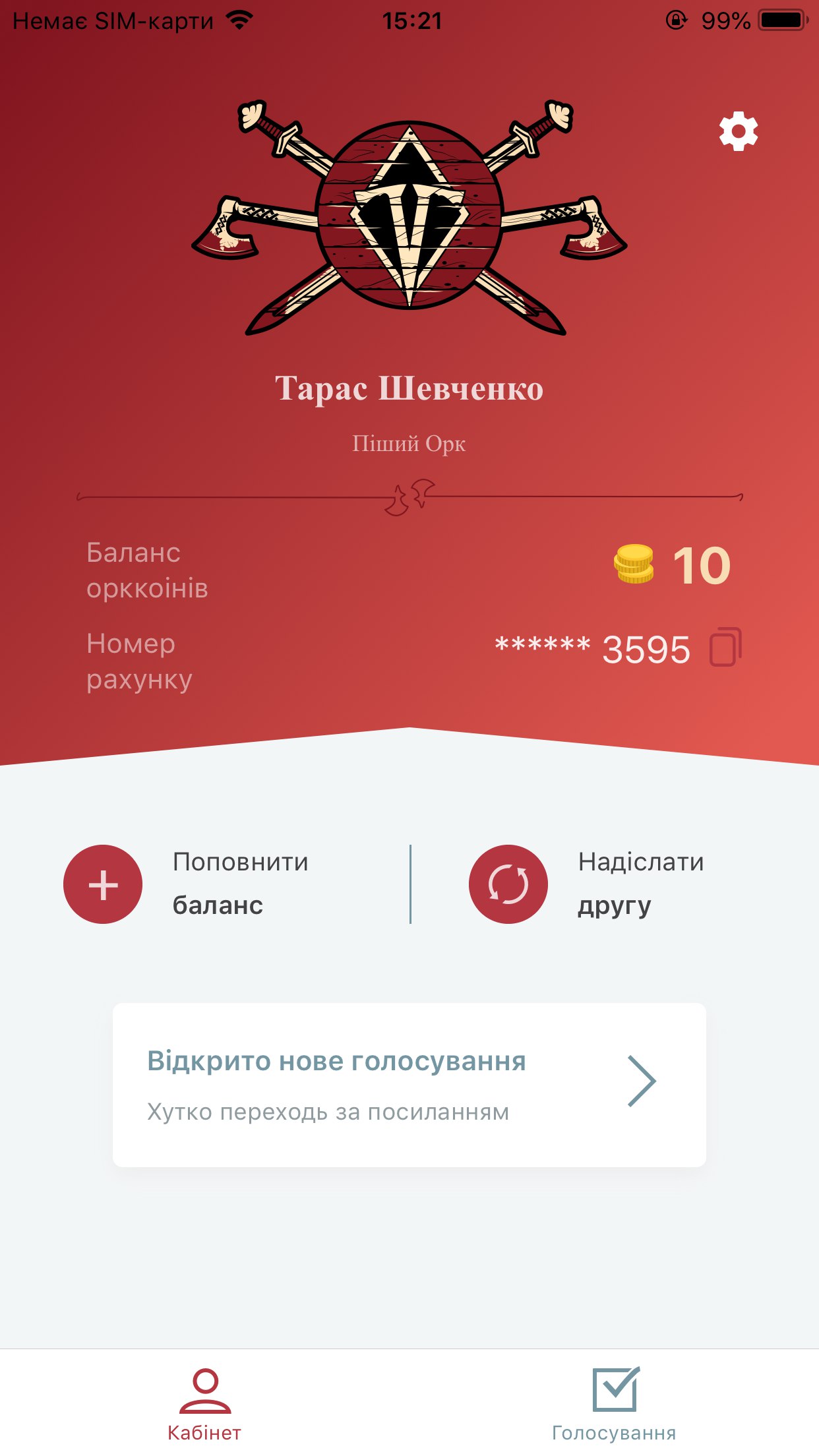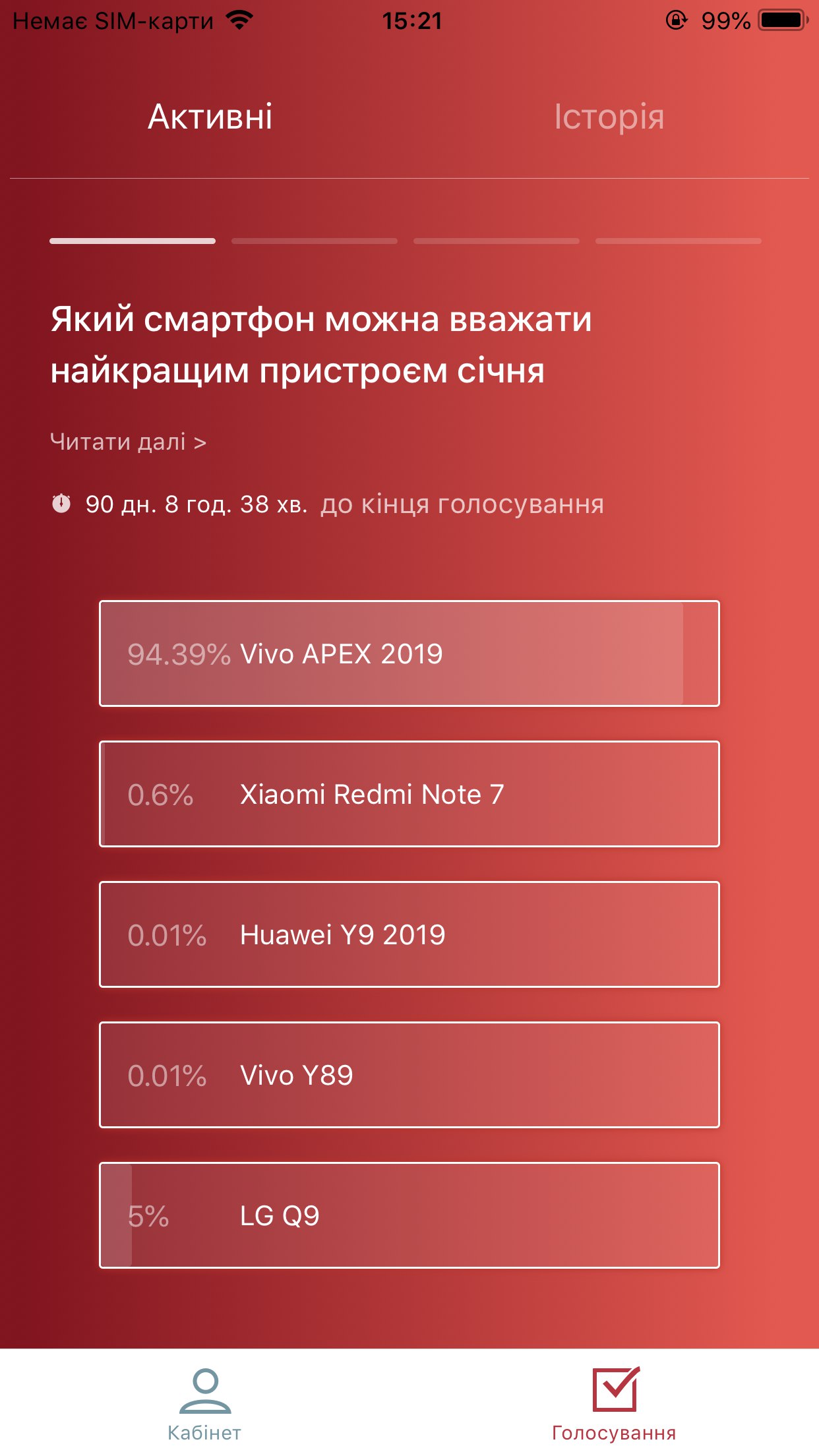TokenD Voting Solution
Short Overview
Distributed Lab has collaborated with a partner company, Luxnet, to deliver a blockchain-based voting system for a Ukrainian liberal political party Democratic Aхе.
TokenD, the software solution for fast deployment of blockchain applications developed by Distributed Lab, has been recently supplemented with the voting functionality. By taking TokenD as the underlying core of the system, our partner company managed to launch the project cost-effectively, within fast time to market and with minimal risks.
TokenD voting solution
The primary purpose of the TokenD’s blockchain-based voting solution is to digitalize the process of decision-making whether it is within an organization, a consortium of companies, committee boards, or crowd investing platforms, etc.
What digitalization means for voting
Security: each vote is a blockchain transaction signed by the voter’s private key which only he/she controls (neither administrators nor the system owner has access to the users’ private keys).
Immutability: once blockchain nodes agree on the state of the ledger, the voting history cannot be re-written or backdated unnoticed.
Auditability: voting history can be made public or available to authorized parties, and they will be able to explicitly verify that the history they are provided with is authentic and complete.
TokenD’s key voting functionalities
- Proportional voting: Weight of a user’s vote can be backed by their holdings in the system, while the details prescribed are fully customizable for the platform owner.
- Fully configurable polls: It is possible to configure who can create polls, what type of users can vote (user account types are also fully customizable and depend on the permissions you initially specify for them), whether a user can cancel their vote afterward, and after which period of time the cancelation would work. For example, this allows implementing petitions where everyone can vote but can’t cancel the vote as well as dedicated party polls where voting is allowed only for specific users.
- Controllable poll initiation: The creation of a user’s poll could either require the approval by an administrator (or multiple administrators) in the system or the approval by an external system, or both.
- Conditional logic for the vote initiation: It is possible to create a poll where the vote of each user should be approved according to the specified conditions (e.g., only users who hold at least 1% of the overall holdings can vote; only users with the participation index higher than the average can vote)
TokenD core customized for a democratic political organization
The TokenD solution allowed the Ukrainian political organization to build their own system for the digitalized voting on a blockchain which took six weeks to launch.


Current version of the application had obtained the following functionalities:
- Users vote using a designated utility token, ORCcoin, which is distributed in the system based on three factors: user role, user activity in the system, user donations.
- The system provides for three user roles: Party Chiefs, Party Ministers, Party Members.
- Each user’s vote has a weight which is proportional to the amount of ORCcoins on their balance.
- The application employs motivation mechanics: Party Members can earn more ORCcoins by actively participating in polls as well as by making donations.
- Under the hood, each vote is a transaction recorded on a blockchain ledger, which can be maintained by multiple parties who verify each other in real-time, effectively making the voting history not only immutable but also reliably auditable for the authorized parties.
Auditing the voting process
The voting system of Democratic Aхе is open and auditable. Anyone can setup a TokenD audit node and monitor voting history in the blockchain. See details here: https://github.com/tokend/d7-auditor-node
